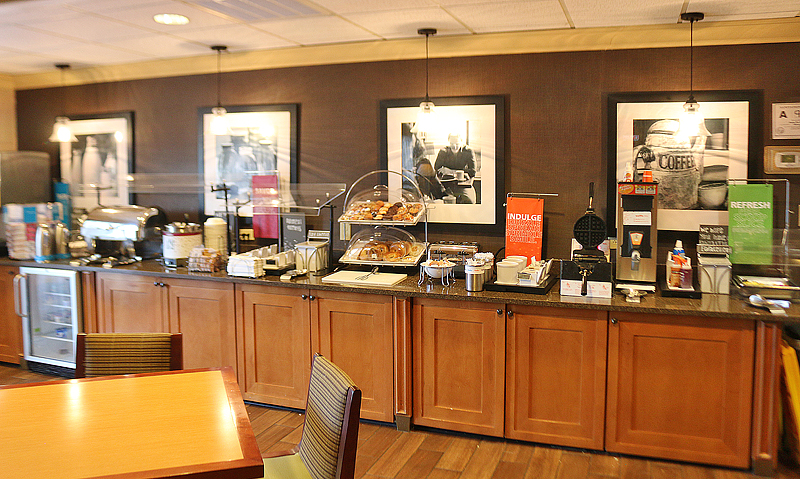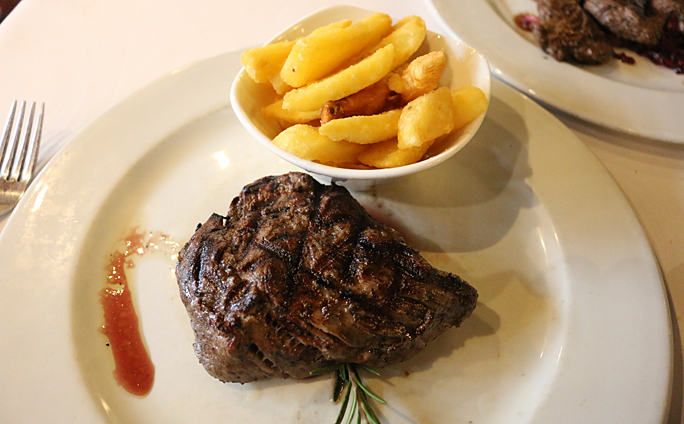If your company pays you what is known as a per diem — which is typically a fixed allowance or payment for certain expenses per day — every time you travel, is profiting from it considered unethical?
Is Profiting From a Per Diem Considered Unethical?
One example is whenever you are traveling, you are given an allowance of $50.00 per day for food. You can typically spend that $50.00 any way you want: perhaps $10.00 on breakfast, $15.00 on lunch, and $25.00 on dinner; or $15.00 on breakfast, nothing on lunch, and $35.00 on dinner. Maybe you want a more expensive dinner and skip breakfast and lunch altogether. The choice of how you allocate your per diem is yours — depending on the policy of the company with which you are employed, of course…

…but as the per diem is usually a fixed amount, what if you decided to grab some items at a continental breakfast — which is included in the room rate at the hotel property at which you are staying — and then you skip lunch and put a couple of cups of instant ramen noodles in the microwave oven in your hotel room? You spent a total of $1.89 for your meals for the day when you went to the supermarket to purchase those cups of instant ramen noodles; and your beverage of choice is tap water out of the sink in the bathroom of your hotel room.
Do you get to pocket the remaining $48.11 for that day as profit — or is that considered theft?

Apparently, a debate is currently ensuing on that very topic in this FlyerTalk discussion pertaining to advice on how to save money — as well as how much you have profited off of your per diem — as well as the ethics which are involved.
“I don’t personally ‘make’ money from my per diem”, FlyerTalk member ughunter posted. “That’s theft/fraud. I have caught many people funnelling perdiem and corp card money into their own hands, and have had a few sent to prison. Things like buying gift cards, then selling them to a broker etc. Sometimes even silly things like shopping and then misrepresenting the expense reason.”
FlyerTalk member der_saeufer argued in response with “No it’s not. Many travel policies pay a fixed per diem for meals based on the area where you’re working. The money belongs to the traveler to use as s/he pleases. If a traveler on such an arrangement wants to eat instant ramen and spend the per diem on something else, that’s the traveler’s right.”
Although ughunter admitted to rolling what was left of the remaining monthly budget over into the next month while working for a company that permitted that practice, can scrimping and saving on the budget at the beginning of the year and roll over the cash to spend it on lavish items by the fourth quarter of that year be considered unethical? After centering the frugality around purchasing meals in supermarkets and spending as little as possible on lodging for cheap discount rooms, “at the start of the year, I was taking some very luxurious business trips by 4th quarter (And some very budget ones in 1st). By the last quarter I was going full fare F and staying in resorts. And it was all within policy and the allocated budget, and never entered my hands personally.”
The reason that last example could be perceived as unethical is because a superior, boss or manager might wonder that if he or she is able to willingly travel rather frugally at the beginning of the year, why can’t he or she do so throughout the entire year and save the company money overall?
Summary

I have traveled on business with an expense account countless times in the past; and I have always believed that in turn for spending time away from home, the traveler should be compensated enough by the company for at least reasonable comfort, convenience and good food. One can argue that a happy business traveler is a productive one…
…but wait until you read this article which I wrote on Friday, July 10, 2015 pertaining to my being called out for what was perceived to be an extra 35 cents for a toll on the Garden State Parkway in New Jersey on my expense report — as well as the ridiculousness which surrounded it. This company for which I worked treated expense reports bizarrely, which resulted in business travel being more of a headache than a joy.
What one company allows as an expense policy may not be permitted by another company, so the company policy dictates what an employee should do when traveling — but is keeping the remainder of a per diem considered unethical; or is pocketing the money for your own benefit simply a perk of the job? How would you feel if you were an employer and you found out that an employee engaged in this practice?
All photographs ©2015, ©2016 and ©2017 by Brian Cohen.

